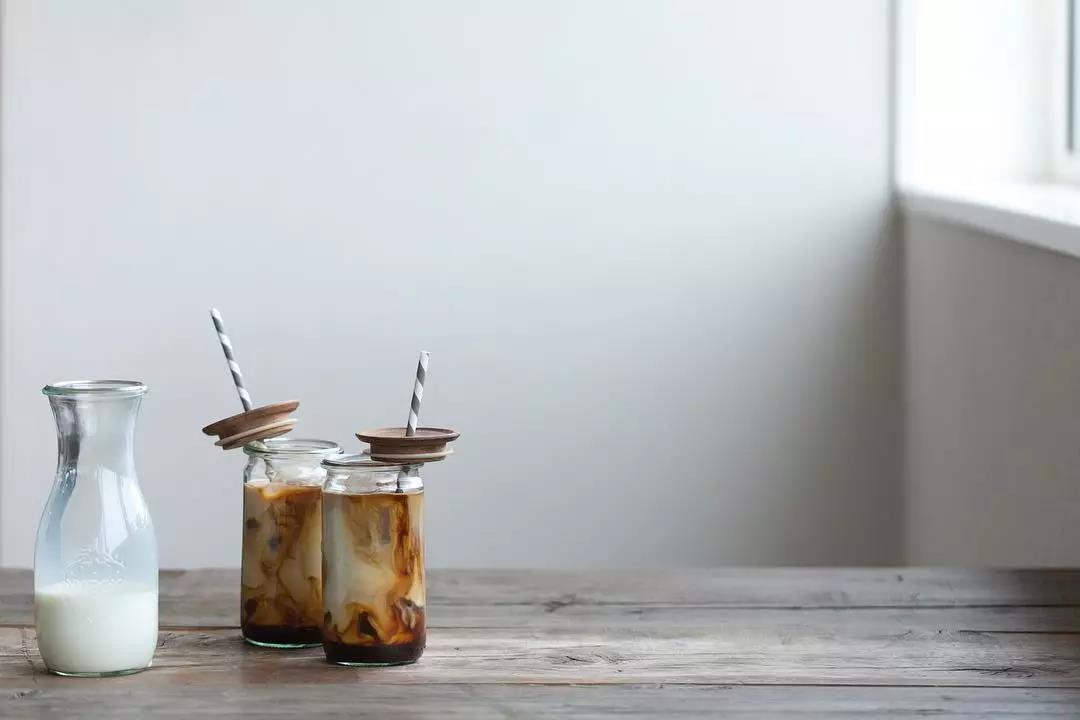I am in love with coffee! Coffee is my daily necessity!
Today was "Guanxuan" brushed screen, how less than our coffee industry!
Guan Xuan: coffee and I are in love! Coffee is my daily necessity!
Coffee users who drink coffee every day, drinking coffee is declared by the official: "Scientific empirical efficacy, the benefits of drinking coffee are many." Let's take a look!

Guan Xuan: drinking coffee in moderation is good for your health.
Five institutions in China jointly released: "Scientific consensus on Coffee and Health"
Five organizations, including the Institute of Nutrition and Health of the Chinese Center for Disease Control and Prevention, and the Food Hygiene Branch of the Chinese Association of Preventive Medicine, jointly released the Scientific consensus on Coffee and Health (hereinafter referred to as "Scientific consensus") a few days ago, making it clear that there is no evidence that coffee causes cancer, and healthy adults can drink coffee appropriately according to their personal conditions, not more than 3 to 5 cups a day. In addition, moderate consumption of coffee does not increase the risk of heart disease and cardiovascular disease, but excessive consumption of coffee is not good for bone health.
As a beverage with a history of more than 100 years, Japan and South Korea drink 200 cups of coffee a year, 400 cups in the United States and 750 cups in Europe. While coffee brings a wonderful taste to consumers around the world, it also brings health concerns-claims such as "coffee causes cancer" often attract public attention.
Zhong Kai, deputy director of the Science and Technology Information Exchange Center for Food and Nutrition, said that the "Scientific consensus" integrates the views of international authoritative organizations such as the US Food and Drug Administration, the European Union Food Safety Administration, and the Canadian Department of Health. The purpose of this paper is to solve the common problems of coffee drinking that are of public concern, in order to help people choose coffee more scientifically and rationally.

The Scientific Consensus states that coffee can be consumed in moderation. It is suggested that consumers sip when they try it for the first time, and reasonably master the drinking frequency and drinking amount according to their own conditions.
According to different population groups, healthy adults drink 3 to 5 cups of coffee per day. It is worth noting that coffee is often measured in cups, and each 150ml cup of coffee contains about 100 mg of caffeine, that is, healthy adults should not consume more than 210 to 400 mg of caffeine per day. For specific populations, although Health Canada, the American College of Obstetricians and Gynecologists, and the American Pregnancy Association, among others, believe that coffee consumption during pregnancy is acceptable in small amounts (no more than 150 to 300 milligrams of caffeine per day), pregnant women should not be encouraged to drink it.
At the same time, children and adolescents should limit caffeine intake, including coffee, tea and other caffeinated beverages. In response, the American Academy of Pediatrics recommends that children and adolescents do not drink coffee, while the U.S. Food and Drug Administration, the European Union Food Safety Agency, Health Canada and other agencies believe that children and adolescents should not consume more than 2.5 to 3 milligrams of caffeine per kilogram of body weight per day.
A 2016 analysis by the International Agency for Research on Cancer concluded that there was insufficient evidence that drinking coffee increased the risk of cancer in humans. In 2017, the International Fund for Cancer Research stated that there was no evidence that drinking coffee causes cancer. There is also some evidence that coffee reduces the risk of certain cancers, such as breast, endometrial and liver cancer.
Regarding whether drinking coffee increases the risk of heart disease in adults, many authoritative associations abroad believe that moderate drinking of coffee (1 to 2 cups per day) by healthy adults does not increase the risk of heart disease and cardiovascular disease. However, some people who are sensitive to caffeine may experience rapid heartbeat, nausea, dizziness and other discomfort, and should adjust the frequency and amount of drinking according to their own conditions.
For people with diabetes, moderate coffee consumption (3 to 4 cups per day) may reduce the risk of type 2 diabetes, but care should be taken to control sugar intake. In addition, excessive caffeine intake in healthy adults increases the risk of osteoporosis. Therefore, for osteoporosis patients, in addition to properly controlling the intake of caffeinated beverages, a balanced diet should be maintained to ensure adequate calcium and vitamin intake, supplemented by moderate exercise and sunlight exposure.

Guan Xuan: from the point of view of traditional Chinese medicine, coffee is slightly bitter, astringent and flat, and drinking in the right amount is good for human health.
According to the Chinese Health Network, Wu Jiandong, an attending physician in the department of traditional Chinese medicine in Linsen Hospital of Taipei Municipal United Hospital, said that before discussing whether the above statement is correct, people should first understand that coffee is a very new ingredient for traditional Chinese medicine. Coffee is roasted and brewed in different ways, and the varieties and types of coffee beans are very diverse, so it is really difficult to apply the traditional Chinese medicine point of view to classify them. However, if we take a closer look at the work of Chinese Materia Medica, which is considered by most Chinese medicine practitioners to be more authoritative, we will find that coffee is defined as slightly bitter, astringent and flat.
As for, why is there a saying on the Internet that coffee is cold, cool, or even hot? Doctor Wu Jiandong pointed out that it may be different from the way coffee is roasted and cooked, such as light roasting, medium roasting, deep roasting, and drinking as a cold or hot drink. After all, according to the theory of traditional Chinese medicine, all foods and medicinal materials vary greatly in nature according to different cooking and processing methods. For example, if you drink cold iced coffee, the nature will naturally turn cooler and colder. And coffee beans will also be roasted for a long time, and with dry heat. Therefore, no matter because of the difference in baking or cooking methods, the coffee you finally drink becomes "cold" or "hot and dry". Basically, you should drink the right amount of coffee.

Chinese medicine practitioner: moderate consumption is good for human health.
Therefore, even though coffee has been confirmed in recent years, its active ingredients such as caffeine, chlorogenic acid, caffeic alcohol and fatty acids have the effects of diuresis, liver protection and cardiovascular protection, and moderate consumption is of great benefit to human health. However, from the perspective of traditional Chinese medicine, when it is impossible to know for sure what kind of coffee people drink, it is still recommended that people should control their intake of coffee drinks appropriately.
In particular, some people who drink coffee are prone to diarrhea and often have cold hands and feet. Wu Jiandong, a doctor of traditional Chinese medicine, suggested that when drinking coffee, you might as well try to add an appropriate amount of spices such as cinnamon, which can boost yang and warm the meridians, so as to add flavor and help fine-tune the nature of coffee.
Cinnamon, which is often used to add flavor to coffee and desserts, actually has many health benefits and can inhibit the insulin that causes fat. According to research, cinnamon can stimulate physiological circulation and increase the metabolic rate of blood sugar by 20 times. Half a tablespoon of cinnamon a day can reduce blood sugar, triglyceride and total cholesterol to achieve slimming effect. Cinnamon also has the effect of relaxing blood vessels, can promote blood circulation, enhance metabolism, and warm the intestinal tract of deficiency and cold.
Three grams of cinnamon powder a day, and the blood sugar level of diabetic patients returned to normal after four months.
Shinji Makada, a specialist in Japanese diabetes, says adding cinnamon to coffee every day can bring down a lot of values. A 43-year-old patient tested for diabetes but said he hoped to improve his symptoms without medication, so Dr. Makada proposed to him a treatment plan to eat 3 grams of cinnamon powder a day and reduce carbohydrate intake.
Patients carefully measure the value of blood sugar every day, and after four months of implementation, the value of glycosylated hemoglobin dropped from 9.9% to 5.6%, smoothly below the standard value.

Official propaganda: Hot coffee helps defecate, drink a cup of black coffee after getting up in the morning, cure my constipation
After getting up in the morning, drink a cup of coffee, after a while want to shit, some serious point like diarrhea... Three out of 10 people want to defecate after drinking coffee. Why? Scientists do not yet have a conclusive explanation for why, but there is plenty of research into how coffee causes bowel movements,
A study of coffee and defecation recruited 99 healthy volunteers, 28 of whom wanted to defecate after drinking coffee. This sample is small but significant. Also, they felt shit 4 minutes after drinking coffee. In this short period of time, coffee does not quickly pass through the intestine or blood to reach the colon, that is, coffee is indirectly triggered by defecation.

Constipation is a gastrointestinal problem that many people often encounter. Most people will improve their condition by drinking more water and eating more fiber. However, some foreign medical experts have pointed out that drinking hot coffee is more effective than drinking water, and it can promote gastrointestinal peristalsis and solve the problem of constipation. Hot coffee helps defecate, which is better than drinking more water.

According to Dr. Michael Ruscio, chief physician of the Center for Digestive Health at the University of Oxford, hot drinks stimulate the digestive system, activate intestinal motility, and cause large intestine muscles to push feces toward the rectum, so any hot drink that contains hot water will help solve defecation. Intestinal motility is critical in digestion. Smooth muscle tissue in the stomach and intestines contracts one after another, forcing food to move. But sometimes, even if there is no food in the stomach, the stomach will be "cheated" and begin to contract. Coffee triggers defecation as a reflex of the stomach and colon. The gastrocolic reflex is the signal your stomach sends to your colon to make room when you wake up in the morning.
However, the latest research in Lao Ou found that among all hot drinks, coffee causes intestinal peristalsis, which is 60% stronger than hot water and 23% stronger than decaffeinated coffee. According to statistics, most people drink hot coffee and feel it within 20 minutes, becoming one of the good things to solve constipation.
According to a previous report in Health Magazine, drinking coffee can cause diarrhea, mainly due to an "unknown ingredient" in coffee that promotes the secretion of gastrin in the stomach and accelerates sigmoid motility.

30% of people want to take a shit after drinking coffee. If you are one of the lucky ones, coffee will promote the secretion of stomach acid, enkephalin or other substances in your body, causing the colon to contract. Some people will gradually become immune to this.
Coffee is what I need every morning.
Coffee helps defecation, which is better than drinking more water. A cup of black coffee after every morning must have a sense of shit within 20 minutes. It all depends on black coffee to cure constipation!

Many white collar friends advocate black coffee diet. Get up early a cup detumescence, after dinner a cup solution greasy, fitness drink a cup, but also can lose weight faster and more effective? Can Black Coffee Really Reduce Weight?
Official propaganda: caffeine can diuretic, improve edema, so as to achieve the goal of "black coffee can lose weight".
Many girls get used to getting up early with a cup of black coffee, which can not only refresh their minds, concentrate their attention, but also contain caffeine that can diuretic, improve edema, and make you "look less fat."
But drinking black coffee to lose weight is not a fantasy, a cup of 100 grams of black coffee only 2.55 kilocalories of calories, the caffeine contained in it can make the body's metabolism faster by 3-4%, under the action of caffeine, on the one hand can accelerate the dissolution of fat, on the other hand will inhibit some of your appetite, thus achieving the goal of "black coffee can lose weight".

Effect of black coffee on weight loss
1. Nerve stimulants
Stimulate the central nervous system, especially brain cells, so that the human brain tissue to increase the secretion of new epinephrine, and then accelerate the heartbeat of the human body, at this time the sympathetic nerve shows a state of excitement, which can reduce appetite.
2. It has diuretic effect.
Increasing urine output also has a temporary effect on weight loss. But excess can be counterproductive. Potassium is left in the body and becomes edema and other problems.
3. Decompose fat
Caffeine consumes fat stored in the body, promotes fat decomposition, and releases fat in the bloodstream. Harvard University has studied the topic of "can coffee lose weight" for 12 years. The results showed that people who drank black coffee were less than 1 jin lighter than those who did not drink black coffee if they did not cooperate with healthy diet and exercise. So if you want to lose weight by drinking black coffee, please say goodbye to cheesecake and a big weekend lunch.
Studies have shown that the metabolic rate increases significantly after caffeine intake (8 mg / kg body weight) for 3 hours, the level of fatty acids in plasma nearly doubles, and the rate of fat oxidation increases significantly.

4. Accelerate the consumption of calories by the body
However, when calorie consumption accelerates, it is likely to lead to hypoglycemia.
Black Coffee weight loss method:
1. Find the right time to drink coffee
Drinking coffee can help you lose weight, but you have to find the right time to make caffeine work fully. Expert research shows that when you drink coffee 40 minutes later, the concentration of fatty acids in the body's blood will rise to the highest, this is the best time to exercise to lose weight, because fatty acids promote the decomposition of fat, making exercise weight loss more effective. So the time to drink coffee can be put half an hour before exercise, the slimming effect will be greatly improved.

2. Light roasted coffee is better.
High roasting temperature coffee, although the taste is rich, but the caffeine content is less, is not conducive to weight loss, but is a lighter taste of American coffee, more conducive to weight loss.
3. Drinking coffee to lose weight is best sugar-free coffee.
Nowadays, many coffees are instant bags and contain a lot of sugar. Sweetened coffee can raise blood sugar and prevent fat burning. And adding sugar will only make people get fatter and fatter.

Coffee can not only increase fat burning during exercise, but also continue after exercise.
Studies have shown that caffeine consumption and non-caffeine intake before and after exercise consume more energy and burn more fat.
1. Improve EPOC performance: that is, it boosts our fat metabolism and then breaks down more fat to supplement our body's glycogen recovery. There will be less and less adipose tissue in the natural body!
Tips; EPOC system what? [Excess Post-exercise Oxygen Consumption (EPOC) (peroxide consumption)]
It refers to the training theory that the glycogen of muscle and liver is completely consumed by continuous anaerobic exercise, and then the glycogen of the body is supplemented by the decomposition of fat. The details are as follows:
The body stores some animal "carbohydrates", that is, glycogen, in the muscle and liver. When we finish training, the glycogen in the body is exhausted. At this time, we need the body to replenish some glycogen to them. In the absence of food supplement, the fat stored by the body begins to be used, and the body fat is decomposed into glycogen. Glycogen is the "strategic material" of our body. So when there is a deficit, the "reserve" fat will be used to convert it. It also promotes the burning of our fat.
▽
How would you like it?
1. Choose the type
When it comes to drinking coffee, not all kinds of coffee are recommended. First of all, black coffee is recommended. Of course, the effect is the best if there are no calories. What if you can't drink black coffee? It is recommended to add skim milk and avoid eating foods containing fat before and after exercise.
2. Choose a good time
The recommended drinking time is:
09:30 to 11:30 is the best time to drink coffee, because this period is the low point of cortisone, which has a good refreshing effect.
At about 2 or 3 o'clock in the afternoon, the concentration of cortisone begins to drop. If you feel tired, you can also drink coffee to wake your head.
Also, 30 minutes after exercise, drink black coffee
According to the analysis of some experts, there are several times when drinking coffee is not appropriate.
The brain secretes the stress hormone cortisol, also known as anxiety hormone. It's best not to drink coffee from 8 a.m. to 9 a.m., and don't drink it immediately when you get up, because cortisol is also high (50% higher than usual) when you wake up, so it's better to drink it after a while. Scientists suggest waiting for an hour or so. The other two periods that are not recommended are from 12:00 to 1 noon and from 5:30 to 6:30 in the evening, when cortisol is usually secreted more.
Be sensitive to coffee and don't drink it 6 hours before going to bed.
3. Choose the right quantity
The recommended intake is about 2 cups, (400mg of caffeine per day for healthy adults). For coffee with normal caffeine content, per cup of 200cc, the average person has 2 cups a day (the total amount of caffeine is about 150~250mg) is OK.
Drink the right amount of coffee
Although coffee can promote fat metabolism and help lose weight and burn fat, in fact, too much caffeine will excite the nerve center, causing insomnia, anxiety and irritability, and excessive alkaline intake will also affect gastric acid secretion. cause gastrointestinal obstruction and even cause gastric mucosal damage and gastric ulcers. Therefore, do not drink too much coffee, generally speaking, 2-3 cups a day (one cup of 200ML) can meet the needs of the day, do not drink too much.
Do not drink coffee when you are nervous.
If you drink coffee when you are nervous, it will often add to the mess. Caffeine helps to improve alertness, agility and memory, but drinking coffee when you are nervous can cause anxiety and have a negative effect. For people with anxiety disorders, caffeine can worsen symptoms such as sweaty palms, palpitations and tinnitus.

Editor Guan Xuan: for patients with severe coffee, such as me, drink it at any time.
Anyway, I can sleep ~ ~ drink 5-6 cups of coffee a day, do not imitate, !
Important Notice :
前街咖啡 FrontStreet Coffee has moved to new addredd:
FrontStreet Coffee Address: 315,Donghua East Road,GuangZhou
Tel:020 38364473
- Prev

Hand-brewing Coffee skill | Coffee gouache ratio | Coffee steaming skill | Coffee bean cultivation period
Hello everyone, friends will buy coffee utensils and coffee beans home to drink, the editor will often receive a variety of questions, friends' enthusiasm for discussion is also very high. So today, the editor will come to share with you some common questions of newcomers. This is the first question: do you find that you can't get into the water by injecting water into the coffee by hand? The editor tells you that this is the right thing to do.
- Next

What's the difference between hand-brewed coffee and espresso? Do I have to add milk to my coffee?
As we all know, coffee with milk is called latte or Ole coffee. For people who are not used to drinking coffee, it will be very bitter to drink espresso alone. It takes a little milk to smooth the entrance. There are some that drink black coffee directly without sugar or milk. For example, American coffee, single-item coffee, generally we think, drink American-style coffee without milk, with milk.
Related
- Beginners will see the "Coffee pull flower" guide!
- What is the difference between ice blog purified milk and ordinary milk coffee?
- Why is the Philippines the largest producer of crops in Liberia?
- For coffee extraction, should the fine powder be retained?
- How does extracted espresso fill pressed powder? How much strength does it take to press the powder?
- How to make jasmine cold extract coffee? Is the jasmine + latte good?
- Will this little toy really make the coffee taste better? How does Lily Drip affect coffee extraction?
- Will the action of slapping the filter cup also affect coffee extraction?
- What's the difference between powder-to-water ratio and powder-to-liquid ratio?
- What is the Ethiopian local species? What does it have to do with Heirloom native species?

